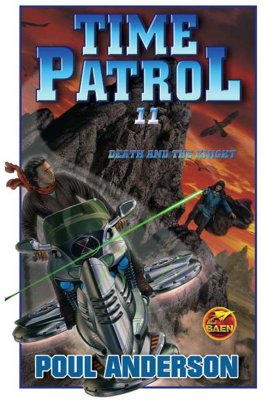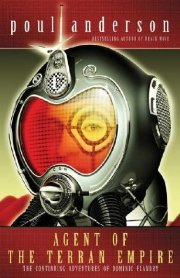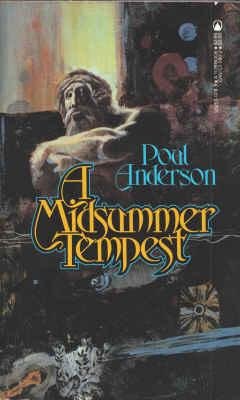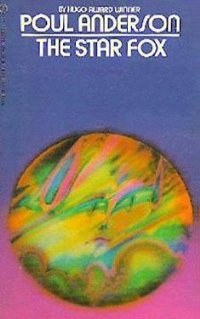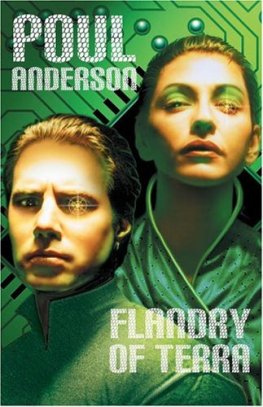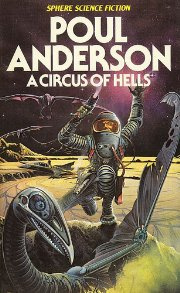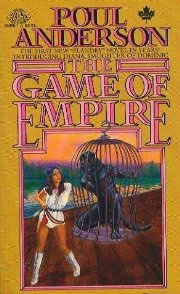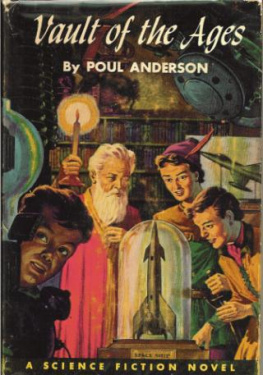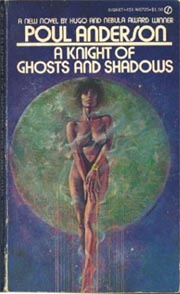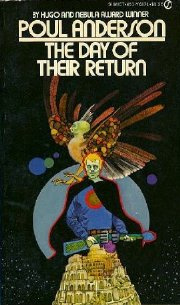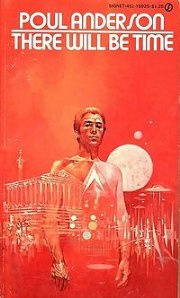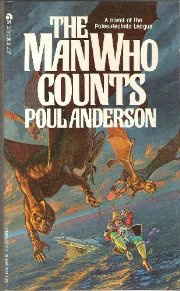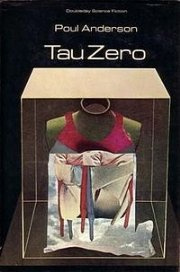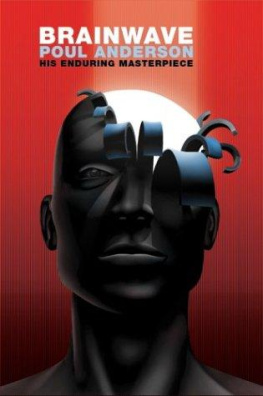Poul Anderson - Death and the Knight
Here you can read online Poul Anderson - Death and the Knight full text of the book (entire story) in english for free. Download pdf and epub, get meaning, cover and reviews about this ebook. genre: Science fiction. Description of the work, (preface) as well as reviews are available. Best literature library LitArk.com created for fans of good reading and offers a wide selection of genres:
Romance novel
Science fiction
Adventure
Detective
Science
History
Home and family
Prose
Art
Politics
Computer
Non-fiction
Religion
Business
Children
Humor
Choose a favorite category and find really read worthwhile books. Enjoy immersion in the world of imagination, feel the emotions of the characters or learn something new for yourself, make an fascinating discovery.
- Book:Death and the Knight
- Author:
- Genre:
- Rating:5 / 5
- Favourites:Add to favourites
- Your mark:
- 100
- 1
- 2
- 3
- 4
- 5
Death and the Knight: summary, description and annotation
We offer to read an annotation, description, summary or preface (depends on what the author of the book "Death and the Knight" wrote himself). If you haven't found the necessary information about the book — write in the comments, we will try to find it.
Death and the Knight — read online for free the complete book (whole text) full work
Below is the text of the book, divided by pages. System saving the place of the last page read, allows you to conveniently read the book "Death and the Knight" online for free, without having to search again every time where you left off. Put a bookmark, and you can go to the page where you finished reading at any time.
Font size:
Interval:
Bookmark:
Death and the Knight
Introduction
In 1952 I attended the world science fiction convention in Chicago and there encountered a young lady named Karen Kruse. We quickly became inseparable, right through the last party in the hotel penthouse, where Stuart Byrne sang Gilbert and Sullivan till, side by side with Anthony Boucher, we saw daybreak over Lake Michigan. Afterward we kept in touch only by mail, she being a Kentucky girl now living in the Washington, D.C. area, but the letters grew more and more frequent. Committed to go back to Europe next summer, on the way I visited her for some days, and we realized we were in love. We both wanted a change of scene and decided to try the San Francisco Bay area. I'd already seen it and liked it. Besides, through science fiction we'd become friends with a number of people there. She moved out to Berkeley and got a job. After I returned in the fall I joined her. She soon lost the job, but that was a liberation. We were married late that year. Our daughter Astrid was born in 1954. In 1960 we bought a house in suburban Orinda where, except for travels, we've lived ever since.
Anthony Boucher, co-founder and at the time co-editor of The Magazine of Fantasy and Science Fiction (later sole editor until he resigned), become one of the dearest of those friends. He was also a mystery writer, a book reviewer, an expert on Sherlock Holmes, a linguist, an opera buff with a radio program on which he played items from his large collection of rare recordings, a gourmet who could cook to meet his own standards, a limerickologist, a fluent and witty public speaker, a tolerant but devout Roman Catholic who knew more about his faith than most priests do, a fiendish poker player, and an all-around delightful human being. So was his wife in her quieter way.
He never let friendship affect his editorial or critical judgment, but he did buy quite a lot from me. This was where the Time Patrol stories got started and most of them appeared. They have been collected in two volumes, The Time Patrol and The Shield of Time. Then, just a few years ago, Katherine Kurtz invited me to contribute to a book she was getting together, Tales of the Knights Templar, and it seemed a good place for another. Since that paperback is probably less readily available by now, I'm letting this item represent the series; but I hope Tony would have liked it.
Ms. Kurtz moved its exposition of the background assumption from the body of it to the front. She was right, and I'll put those few words here.
"'What is truth?' said jesting Pilate, and would not stay for an answer." What is real, what is might-be or might-have-been? The quantum universeflickers to and fro on the edge of the knowable. There is no way to foretell the destiny of a single particle; and in a chaotic world, larger destinies may turn on it. St. Thomas Aquinas declared that God Himself cannot change the past, because to hold otherwise would be a contradiction in terms; but St. Thomas was limited to the logic of Aristotle. Go into that past, and you are as free as ever you have been in your own day, free to create or destroy, guide or misguide, stride or stumble. If thereby you change the course of events that was in the history you learned, you will abide untouched, but the future that brought you into being will have gone, will never have been; it will be a reality different from what you remember. Perhaps the difference will be slight, even insignificant. Perhaps it will be monstrous. Those humans who first mastered the means of traveling through time brought about this danger. Therefore the superhumans who dwell in the ages beyond them returned to their era to ordain and establish the Time Patrol.
Paris, Tuesday, 10 October 1307
Clouds raced low, the hue of iron, on a wind that boomed through the streets and whined in the galleries overhanging them. Dust whirled aloft. Though the chill lessened stenches offal, horse droppings, privies, graves, smoke ripped ragged out of flues the city din seemed louder than erstwhile: footfalls, hoof-beats, wheels creaking, hammers thudding, voices raised in chatter, anger, plea, pitch, song, sometimes prayer. Folk surged on their manifold ways, a housewife bound for market, an artisan bound for a task, a priest bound for a deathbed, a mountebank in his shabby finery, a blind beggar, a merchant escorted by two apprentices, a drunken man-at-arms, a begowned student from the university, a wondering visitor from foreign parts, a carter driving his load through the crowd with whip and oaths, others and others and others in their hundreds. Church bells had lately rung tierce and the work of the day was fully acourse. All made way for Hugue's Marot. That was less because of his height, towering over most men, than his garb. Tunic, hose, and shoes were of good stuff, severe cut, subdued color, and the mantle over them was plain brown; but upon it stood the red cross that signed him a Templar. Likewise did the short black hair and rough beard. Whether or no the rumors were true that the Order was in disfavor with the king, one did not wish to offend such a power. The grimness on his lean features gave urgency to deference. At his heels trotted the boy who had brought his summons to him.
They kept close to the housefronts, avoiding as much as possible the muck in the middle of the street. Presently they came to a building somewhat bigger than its similar and substantial neighbors. Beyond its stableyard, now vacant and with the gate shut, was an oaken door set in half-timbered walls that rose three stories. This had been the home and business place of a well-to-do draper. He fell in debt to the Templars, who seized the property. It was some distance from the Paris Temple, but upon occasion could accommodate a high-born visitor or a confidential meeting.
Hugues stopped at the front door and struck it with his knuckles. A panel slid back from an opening. Someone peered through, then slowly the door swung aside. Two men gave him salutation as befitted his rank. Their faces and stances were taut, and halberds lifted in their fists not ceremonial, but working weapons. Hugues stared.
"Do you await attack already, brothers, that you go armed indoors?" he asked.
"It is by command of the Knight Companion Fulk," replied the larger. His tone rasped.
Hugues glanced from side to side. As if to forestall any retreat, the second man added, "We are to bring you to him straightway, brother. Pray come." To the messenger: "Back to your quarters, you." The lad sped off.
Flanked by the warrior monks, Hugues entered a vestibule from which a stairway ascended. A door on his right, to the stableyard, was barred. A door on his left stood open on a flagged space filling most of the ground floor. Formerly used for work, sales, and storage, this echoed empty around wooden pillars supporting the ceiling beams. The stair went up over an equally deserted strongroom. The men climbed to the second story, where were the rooms meant for family and guests; underlings slept in the attic. Hugues was ushered to the parlor. It was still darkly wainscoted and richly furnished. A charcoal brazier made the air warm and close.
Fulk de Buchy stood waiting. He was tall, only two inches less than Hugues, hooknosed, grizzled, but as yet lithe and possessing most of his teeth. His mantle was white, as befitted a celibate knight bound by lifelong vows. At his hip hung a sword.
Hugues stopped. "In God's name. . greeting," he faltered.
Fulk signed to his men, who took positions outside in the corridor, and beckoned. Hugues trod closer.
"In what may I serve you, Master?" he asked. Formality could be a fragile armor. The word conveyed by the boy had been just that he come at once and discreetly.
Fulk sighed. After their years together, Hugues knew that seldom-heard sound. An inward sadness had whispered past the stern mask.
Font size:
Interval:
Bookmark:
Similar books «Death and the Knight»
Look at similar books to Death and the Knight. We have selected literature similar in name and meaning in the hope of providing readers with more options to find new, interesting, not yet read works.
Discussion, reviews of the book Death and the Knight and just readers' own opinions. Leave your comments, write what you think about the work, its meaning or the main characters. Specify what exactly you liked and what you didn't like, and why you think so.

